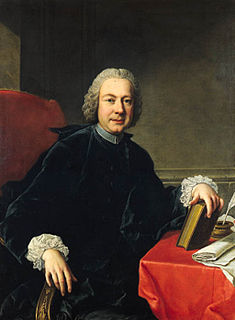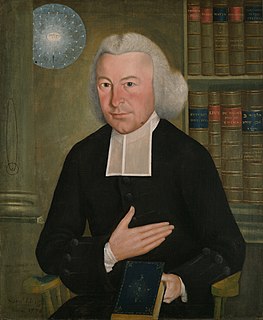A Quote by John Adams
I always consider the settlement of America with reverence and wonder, as the opening of a grand scene and design in providence, for the illumination of the ignorant and the emancipation of the slavish part of mankind all over the earth.
Related Quotes
The emancipation of the scholars and scientists from philosophy is according to [Nietzsche] only a part of the democratic movement, i.e. of the emancipation of the low from subordination to the high. ... The plebeian character of the contemporary scholar or scientist is due to the fact that he has no reverence for himself.
A Grand Design we couldn't see because we were part of it. A Grand Design we only got occasional, fleeting glimpses of. A Grand Design involving the entire course of history and all of time and space that, for some unfathomable reason, chose to work out its designs with cats and croquet mallets and penwipers, to say nothing of the dog. And a hideous piece of Victorian artwork. And us.
We live in a new and exceptional age. America is another word for Opportunity. Our whole history appears like a last effort of the Divine Providence in behalf of the human race; and a literal, slavish following of precedents, as by a justice of the peace, is not for those who at this hour lead the AMERICAN CIVILIZATION.
Even in the darkest of times we have the right to expect some illumination, and ... such illumination may well come less from theories and concepts than from the uncertain, flickering, and often weak light that some men and women, in their lives and their works, will kindle under almost all circumstances and shed over the time-span that was given them on earth.
Whether it's one scene or 15 scenes in a film, whether it's the lead or a cameo part, if I don't find it interesting, I tend not to do it. You never really know what it is. It could be a one-scene part. I remember I read the one scene in Crash and was asked to do it. I was like, "Absolutely!" There's no formula for how something has to be. I always try to keep it that way.
































